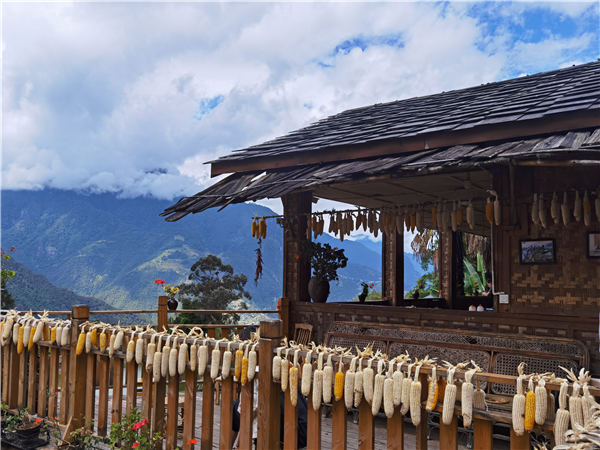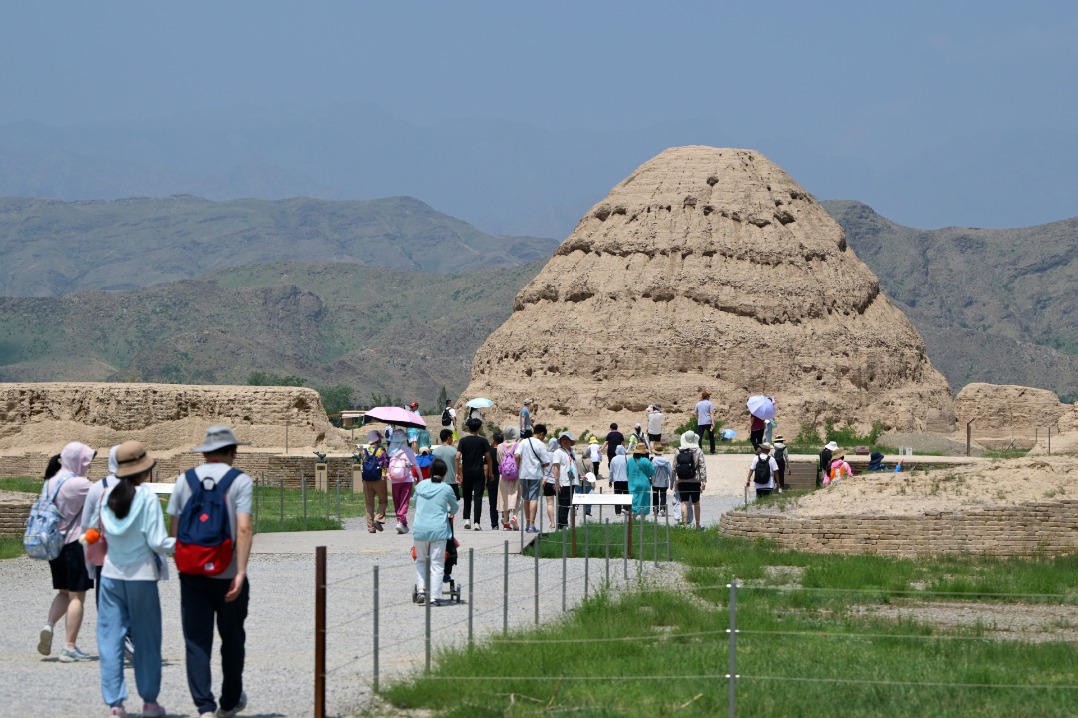Nu way of thinking brings prosperity


Ethnic hospitality, music and art spark a burgeoning agritourism industry in the mountains of Yunnan, Cheng Yuezhu and Li Yingqing report.
Up in the mountains of Fugong county, Southwest China's Yunnan province, the village of Laomudeng presents an idyllic countryside scene, with its pleasant natural landscape and well-preserved ethnic culture.
The name Laomudeng, transliterated from the local language of the Nu ethnic group, means "where people like to go"-which is the reason that the village has been able to shake off the shackles of poverty through agritourism.
One of the village's leading figures in the development of its tourism offerings is Yu Wulin. His 150 Inn has become a landmark in the village.
The 44-year-old was born and raised in Laomudeng and, because of his skills in ethnic singing and dancing, in 1996 he was selected by a performance troupe and went to work in Shanghai for several years.
After returning to the village, because Yu was among the few residents who could speak mandarin at the time, the villagers often introduced passing backpackers, who came to the area attracted by its natural beauty, to his house.
"In our Nu culture, we have this custom that the more guests, the more fortunate the household. So we frequently accommodated tourists with a makeshift bed in our living room," Yu recalls.
"Many insisted on leaving us some money. And some guests suggested to me that I should open up an inn to increase our income," Yu says.
Therefore, in 2001, he built a crude single-story house with eight bunks to accommodate tourists.
Without any experience or knowledge of the tourism industry, the construction of his inn was mostly based on the requests of his guests.

As time went on, more visitors started asking if the inn offered rooms with en-suite facilities, so the hostelry was refurbished and has gradually evolved into a three-story building with en-suite rooms and a courtyard. Yu has also built a second inn in the village.
His annual earnings from the original has increased from just several hundred yuan in the beginning to over 200,000 yuan ($29,500) last year.
Apart from being an innkeeper, Yu is now also a provincial-level inheritor of intangible cultural heritage with his mastery in odede (exclamation in Nu language), a Nu ethnic song style that incorporates the music of the dabiya, a plucked, stringed instrument, with dancing.
The inn has now become a base for local artists and music lovers. Many guests will invite local artists to perform at the inn, and Yu will often join in. During school holidays, children living nearby often come to the inn to learn how to play ethnic instruments, and performance skills, such as singing and dancing, from the artists.
- China's tourism authority warns of COVID-19 ahead of national holiday
- Malaysia's ancient entrepot slowly back to life
- Shandong building culture and tourism industries at rapid pace
- Tourism authority promotes 300 rural travel routes for National Day holiday
- Hunan Sports Tourism Festival 2020 underway

































